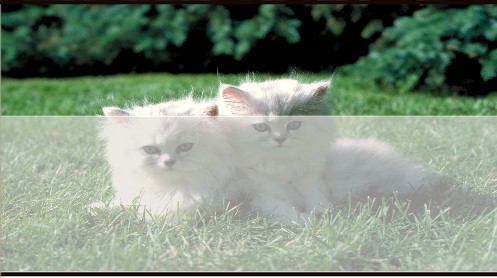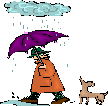

|
"Adopt an Animal Gain a Friend" |
|
|
|
|
![]()
Housetraining Your Dog
|
Housetraining Your Dog Housetraining
a puppy takes time, patience and knowledge.
It may take several weeks to
housetrain a puppy and, with some smaller
breeds, it may take longer.
During that time you should expect
several accidents until the puppy learns
what will be expected of him. A puppy under six months old cannot be expected to control his bladder for more than a few hours, so you will need to take him outdoors every couple of hours. Between outdoor trips you will need to supervise him constantly. You want to be able to see him each time he looks like he is going to eliminate indoors so that you can quickly take him to his bathroom spot outdoors. So, if you need to be gone from home any more than about 4 hours during the day, this may not be a good time for you to get a puppy. In this case, you should consider getting an older dog who has already been housetrained. An excellent source of information on how to housetrain your puppy can be found at the Denver Dumb Friends League web site (http://www.ddfl.org/behavior/housetraining_puppies.htm). They also have information on re-housetraining your adult dog, if needed (http://www.ddfl.org/behavior/re_housetraining.htm). The basics of housetraining include the following: 1. Every couple of hours take your puppy outside to a consistent location, close to the door, which he can use for his bathroom spot. 2. It is crucial to praise your dog lavishly each time he uses his bathroom spot. By letting him know how good he is each time he uses the bathroom spot, he will more quickly learn what you want him to do. 3. Put your puppy on a regular feeding routine – usually 3-4 times per day for a puppy. This will make it more likely that he will eliminate at regular times, making housetraining easier for you and him. 4. Supervise constantly. Keep him close to you at all times. You want to be able to see him each time he looks like he might go to the bathroom so that you can quickly move him to his spot outdoors. 5. If there are periods of a few hours when you cannot watch him, he should be confined to a small area which is just big enough for him to comfortably stand, lie down and turn around. A portion of a bathroom or laundry room that has been partitioned off with a baby gate can serve this purpose. If this is not possible, you might consider crate training. For information on crate training see the Denver Dumb Friends League web site (http://www.ddfl.org/behavior/cratetraining.htm). If you will be considering crate training, there are two important things to understand; the puppy should be trained to see the crate as positive place to be and training should take place in a series of small steps as you gradually introduce him to the crate and gradually let him get used to longer periods at a time in the crate – up to a maximum of 3-4 hours at a time. 6. If you see your puppy in the process of having an accident, you should do something to interrupt him by saying “no” or making a loud noise (without scaring him) and then immediately taking him outdoors where he should be praised if he finishes eliminating there. 7. Never, never, never punish your puppy if you find that he has already finished an accident indoors. Never, never, never “rub his nose in” any accident that you find. If you punish your dog after he already finished his accident, he will not make the connection between your punishment and the accident. Therefore, such after-the-fact punishment will only confuse him and may cause other behavior problems such as aggression or fear. 8. When your puppy does have an accident indoors, be sure to clean the area completely. Cleaning tips can be found at the Denver Dumb Friends League web site at http://www.ddfl.org/behavior/cleaning.htm. 9. Paper training a puppy can be done, but is not recommended. It can prolong housetraining and may lead to a life-long habit of eliminating on papers he finds lying around the house. 10. If you must leave your puppy home alone for periods longer than a few hours, you may want to consider getting a friend or relative to come to your house to take your puppy outdoors. Good luck training your puppy. This can be a great time for your friend as he learns what he can accomplish and what he can do to make you happy. At those times when he does have an accident, remember that he is not “mad at you” or “being bad.” Puppies are not born understanding that they cannot use the bathroom indoors. By using lavish praise when he does it right, you will teach him what he needs to know to get along in this world. Remember to supervise and praise! |
![]()
![]()
![]()
Copyright © [2003] [Little Buddies Adoption and Humane Society].
